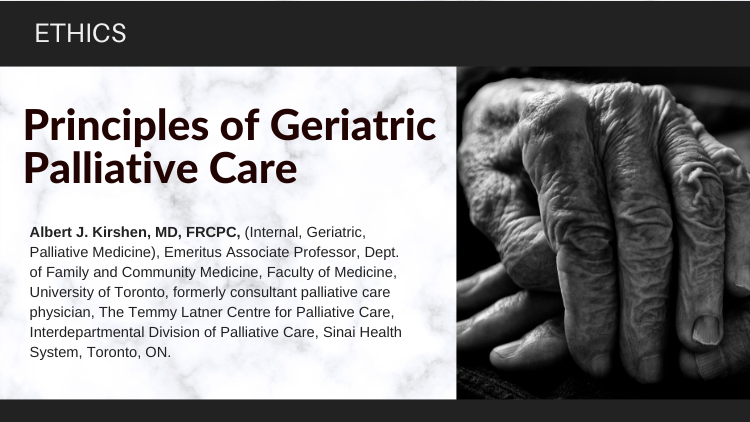(Internal, Geriatric, Palliative Medicine), Emeritus Associate Professor, Dept. of Family and Community Medicine, Faculty of Medicine, University of Toronto, formerly consultant palliative care physician, The Temmy Latner Centre for Palliative Care, Interdepartmental Division of Palliative Care, Sinai Health System, Toronto, ON.


